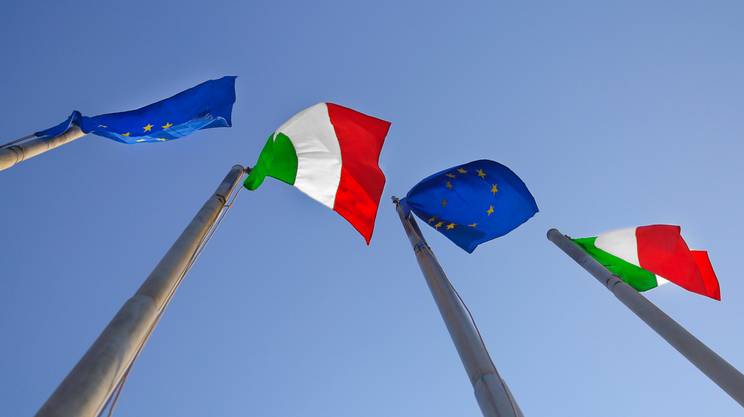Even though he said he’s resigned himself to the idea of give up a top position in the European Union, Enrico Letta seemed too committed and proactive to stand aside. “I think it is highly improbable, not to say impossible, to have another Italian at the top of one of the European Institutions besides Mario Draghi, President of the ECB. I am aware of this and I’ll live with it.” This is how the former Italian Prime Minister, Enrico Letta, has tried to get rid of the issue concerning a possible appointment as President of the European Council, during a public meeting about Europe held in Rome earlier this week. His name is making the rounds these days in Rome, approved by both EPP and S&D, able to smooth the discords between North and South of Europe as well.
All the more so as there is the ‘UK issue’. There are already significant tensions with London in reference to the name of the EPP candidate Jean-Claude Juncker as European Commission’s next President. It would be difficult to make the British PM, David Cameron – and the line of reasoning applies to other countries too – accept another Italian as head of a top European Institution. Letta himself is aware that it’s not possible to take things too far with the UK. “I’m warning against a possible ‘Brexit’,” he underlined, “first because this possibility should not be underestimated.” With Nigel Farage’s UKIP electoral success in fact, and a referendum to be held in 2017, “decisions perceived as hostile against the UK could even bring about a victory” for eurosceptics. And then, added Letta, “would would be the European Union without London? I cannot even imagine a Union without the third or fourth financial capital of the world.”
Going beyond the obstacles to his appointment, Letta has made a remarkable speech, as one of the EU top leaders. Dealing with euroscepticism, he said that “Europe needs to be nice again. We need to talk about it at supper, in Irish families as well as in Italian ones, as an opportunity.” To get this result, there is a two-step recipe: employment, “top priority because unemployment rates are unacceptable,” and relaunch of the Erasmus project, “to be widened to sixteen years old kids, to give them a true opportunity” to enrich their studying experience with a travel in the European Union.
Letta still wants to have a word on European issues, and it’s easy to get it having a look at the economic themes he discussed. First, the need to rebalance austerity policies, being more careful towards growth. “You cannot ask a Country to cut only,” he said, “requiring it to invest in growth at the same time.” The idea of writing off the expenses for public investments from deficit accounting “could be a solution” but it is not the only one. Maybe, “Europe can act” where single Member States cannot. An obvious hint to European Project Bonds, which could be used by Europe to succeed to (or better, to be on the side of) states for investments.
Letta has also indicated some of the priorities of the next five years. First, energy. Today “each country enters negotiations with suppliers and panhandles,” while “collective negotiation could give more power, and more advantages” to everyone. Then, “the need to work on interconnections,” on a European energy network. The example given is Spain, with its regassification plants, “working at 20 percent of their capability because there is no network to export that gas out of Spain, towards the other EU members.”
Another main issue, according to the former PM, is the re-equilibrium between competition protection and development of companies at global level. “For years, we’ve made everything we could to avoid new European champions to come into the world,” denounced Letta. The idea is that, with the banning of mergers between national giants ‘in the name of competition’, the possibility of having companies competitive at global level was denied to Italy. The risk, then, is that “out of the crisis, American and Chinese companies will do whatever they want” because they will be the only one able to pursue a policy of takeovers.
The attention towards international trade is another thing Letta talked about. The crucial match will be played with the Transatlantic Trade and Investment Partnership with the United States: “it is crucial” because “it would let Europe gain 0.5 percent of GDP a year.”











